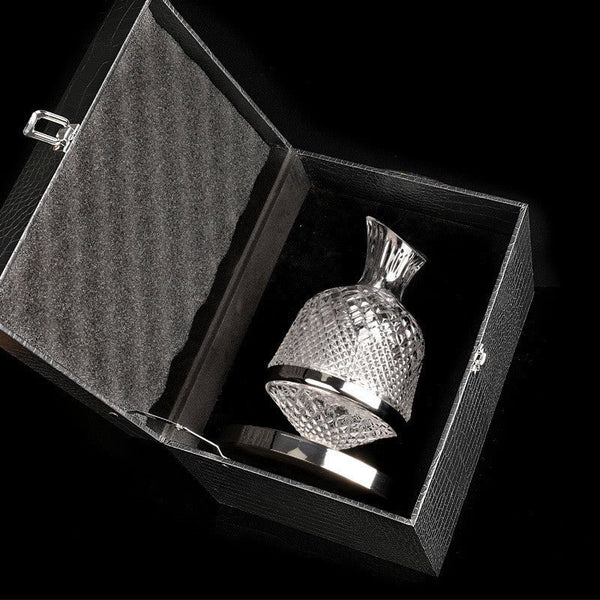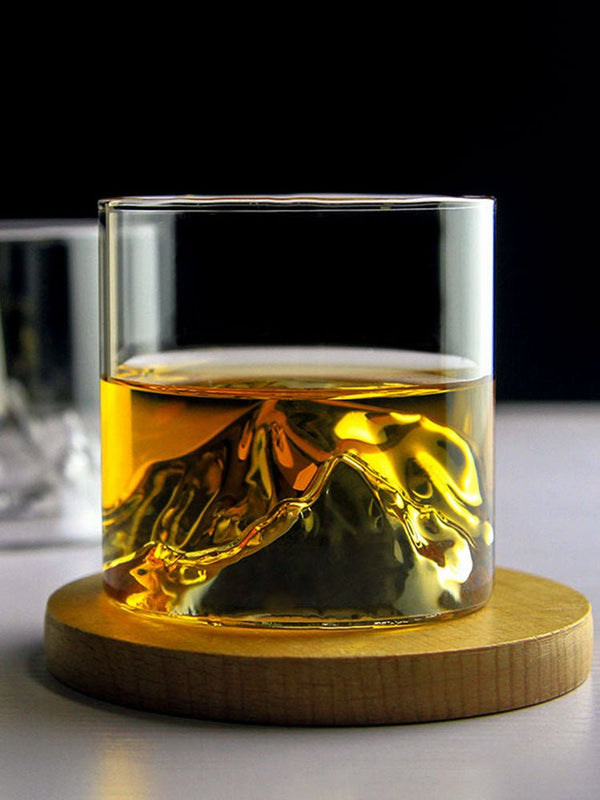Best Japanese Whiskies
Products on sale
-
 Turbocharger Whiskey Decanter
Turbocharger Whiskey Decanter
- Regular price
- $42.99
- Sale price
- $42.99
- Regular price
-
$56.99 - Unit price
- per
Sold out -
 Crystal-cut Rotating Decanter
Crystal-cut Rotating Decanter
- Regular price
- from $119.81
- Sale price
- from $119.81
- Regular price
-
$160.00 - Unit price
- per
Sold out -
 Japanese Whisky Glass
Japanese Whisky Glass
- Regular price
- from $24.99
- Sale price
- from $24.99
- Regular price
-
- Unit price
- per
Sold out
Japan is renowned for its Whiskies, but there are a lot. Here are 7 of the best Japanese Whiskies you can buy.
Japanese whisky has gained popularity in recent years due to its high quality and attention to detail in the production process. Many people find Japanese whisky to be desirable because it is typically well-balanced, smooth, and has a complex flavour profile with a wide range of aromas and flavours.
Japanese whisky producers are known for their strict adherence to traditional production methods and their use of high-quality ingredients. Many Japanese whisky distilleries use traditional pot stills and follow a multi-step distillation process to create a smooth, refined product. Japanese whisky producers also place a strong emphasis on aging their whiskies in a variety of different barrels, including ex-bourbon, ex-sherry, and Japanese oak barrels, which can contribute to the flavour and character of the final product.
In addition to the quality of the whisky itself, the packaging and presentation of Japanese whiskies is often considered to be visually appealing, making them a desirable gift or collectors item.
7 peated Japanese Whiskies
Yamazaki Single Malt: This Japanese whisky from Suntory's Yamazaki distillery is widely considered to be one of the Best Japanese whiskies. It is made from a blend of malted barley, corn, and wheat and is aged in a combination of American oak, Spanish oak, and Japanese oak barrels. It has a complex flavour profile with notes of fruit, honey, and a hint of spice. The price for a bottle of Yamazaki Single Malt will vary depending on the specific expression and size of the bottle, but prices generally range from around $60 to $300 or more.
Hibiki Japanese Harmony: Another highly regarded Japanese whisky, Hibiki Japanese Harmony is a blend of single malt and grain whiskies from Suntory's Yamazaki, Hakushu, and Chita distilleries. It is aged in a combination of ex-bourbon and ex-sherry casks and has a smooth, well-balanced flavour with notes of fruit, honey, and a hint of oak. The price for a bottle of Hibiki Japanese Harmony will vary depending on the size of the bottle, but prices generally range from around $50 to $100 or more.
Nikka From the Barrel: This Japanese whisky from Nikka is a blend of single malt and grain whiskies that are aged in a combination of ex-bourbon and ex-sherry casks. It has a bold, full-bodied flavour with notes of fruitcake, spices, and a hint of peat smoke. The price for a bottle of Nikka From the Barrel will vary depending on the size of the bottle, but prices generally range from around $50 to $100 or more.
Suntory Toki: A blend of single malt and grain whiskies from Suntory's Yamazaki, Hakushu, and Chita distilleries, Suntory Toki has a smooth, well-balanced flavour with notes of fruit, honey, and a hint of oak. The price for a bottle of Suntory Toki will vary depending on the size of the bottle, but prices generally range from around $30 to $50 or more.
Hakushu Single Malt: A single malt whisky from Suntory's Hakushu distillery, Hakushu Single Malt is aged in a combination of ex-bourbon and ex-sherry casks. It has a light, delicate flavour with notes of fruit, herbs, and a hint of smoke. The price for a bottle of Hakushu Single Malt will vary depending on the specific expression and size of the bottle, but prices generally range from around $60 to $150 or more.
Nikka Taketsuru Pure Malt: This Japanese whisky from Nikka is a blend of single malt whiskies from the Yoichi and Miyagikyo distilleries. It has a rich, full-bodied flavor with notes of fruit, honey, and a hint of peat smoke. The price for a bottle of Nikka Taketsuru Pure Malt will vary depending on the specific expression and size of the bottle, but prices generally range from around $50 to $100 or more.
Chichibu Single Malt: A single malt whisky from the Chichibu distillery, Chichibu Single Malt is aged in a combination of ex-bourbon and ex-sherry casks. It has a rich, complex flavour with notes of fruitcake, spices, and a hint of smoke. The price for a bottle of Chichibu Single Malt will vary depending on the specific expression and size of the bottle, but prices generally range from around $100 to $200 or more.
How is Japanese Whisky different?
Japanese whisky is different from Irish and Scottish whiskies in a number of ways.
One of the main differences is the production process. Japanese whisky producers often follow a multi-step distillation process using traditional pot stills, which can result in a smoother, more refined product. In contrast, Irish and Scottish whiskies are typically distilled using a continuous distillation process, which can produce a more robust, full-bodied flavour.
Another difference is the types of barrels used for aging. Japanese whisky producers often age their whiskies in a variety of different barrels, including ex-bourbon, ex-sherry, and Japanese oak barrels, which can contribute to the flavour and character of the final product. In contrast, Irish and Scottish whiskies are typically aged in ex-bourbon or ex-sherry barrels.
There are also differences in the types of grain used in the production process. Irish and Scottish whiskies are typically made from malted barley, while Japanese whisky can be made from a variety of grains, including malted barley, corn, and wheat.
While all three types of whisky have their own unique characteristics and flavor profiles, Japanese whisky is known for its smooth, refined flavor and attention to detail in the production process.
Are the whisky glass whisky Japanese Whiskies aged the longest?
In general, longer aging times can result in a more complex, refined flavour in whisky. However, the Best Japanese whiskies are not necessarily those that are aged the longest.
Japanese whisky producers often pay close attention to the aging process, carefully selecting the type and size of barrels to use and monitoring the aging process to ensure that the final product is of the highest quality. In some cases, younger whiskies that are aged for a shorter period of time may be considered to be of higher quality due to the quality of the barrels used or the overall production process.
In addition, the flavour profile of a whisky can also be influenced by the type and proportions of the grains used in the production process, as well as the type of stills used for distillation. As a result, the Best Japanese whiskies are those that are made using high-quality ingredients and production methods and that have a well-balanced, complex flavour profile.
Overall, while aging time can be an important factor in the flavour and quality of a whisky, it is not the only factor to consider when determining the Best Japanese whiskies.



